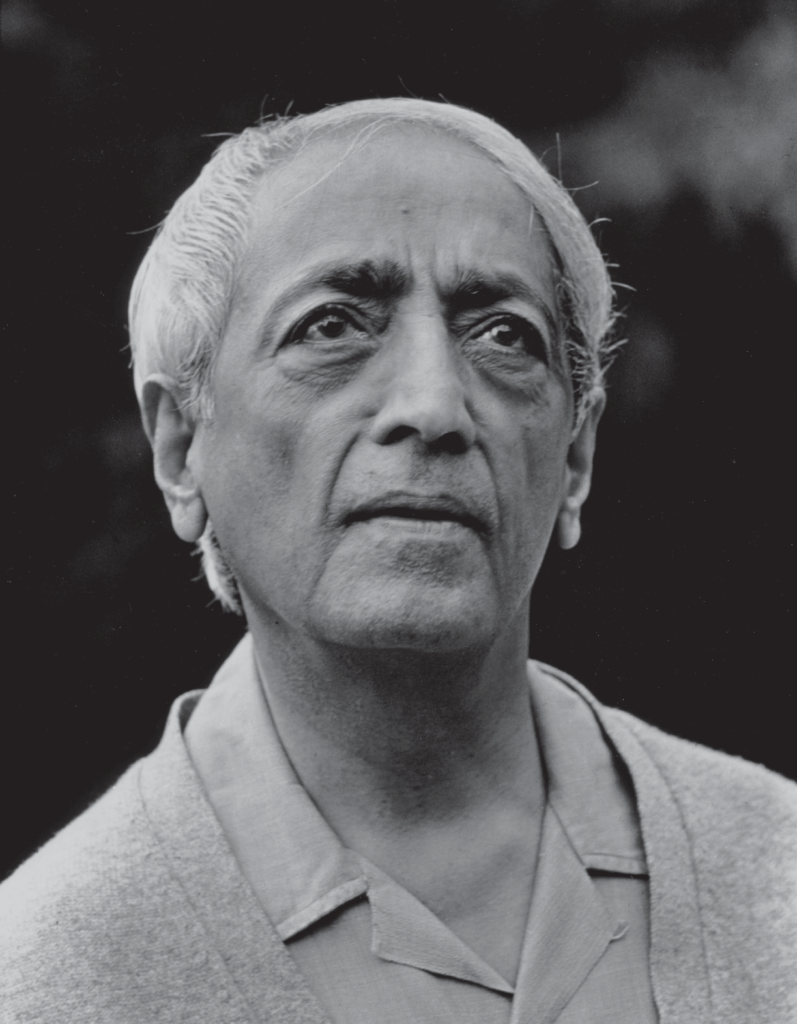
Jiddu Krishnamurti (1895–1986) was born of Indian parents, educated in England, and gave talks around the world. He claimed allegiance to no caste, nationality, or religion and was bound by no tradition.
His extensive teachings are published in more than 75 books, 2000 audios and650 videos. Thus far, over 4 million copies of his books have been sold in 22 languages. Together with the Dalai Lama and Mother Teresa, Krishnamurti was declared by Time magazine to be one of the five saints of the 20th century.
He travelled the world for 65 years speaking to large audiences until the end of his life at age 90. He rejected all spiritual and psychological authority, including his own. He maintained that it is necessary for human beings to free themselves from their age-old conditioning through the direct understanding of the working of their minds. This self-knowledge might then bring about a profound change in human consciousness. It was clear to him that no political, social or economic strategies can transform the chaotic and violent world into a life of goodness, love and compassion. It can only be transformed through a total inner revolution brought about through direct observation and insight.
Krishnamurti’s stature as an original religious philosopher attracted traditional and nontraditional thinkers. He bridged science and religion. Heads of state, eminent scientists including the theoretical physicist David Bohm, psychiatrists, psychologists, religious leaders and literary figures engaged in dialogue with him. Students, teachers, and millions of people from all walks of life came to hear him speak and read his books. He avoided jargon and used simple language so that specialists and lay people alike could follow his explorations of the human condition, the field of thought and time, and such deeper dimensions as death, creation and the sacred.
He established foundations in Britain, India, the United States and Spain, with the express intent of preserving and protecting the integrity of the teachings and of disseminating his work, without the authority to interpret or deify the teachings or the person.
He also founded schools in India, Britain and the United States to explore his holistic vision of education. He wrote: “Surely a school is a place where one learns about the totality, the wholeness of life. Academic excellence is absolutely necessary, but a school includes much more than that.” This education is concerned with the flowering of the total human being in wholeness and freedom. It is the awakening of sensitivity, affection and intelligence beyond mere talent and academic and technical skills. It is to learn the art of living, not just the means to earn a living.
He set up study centres where his work can be researched and inquired into in the company of others and in a totally non-sectarian spirit of inward recollectedness and universal concern.
He said of his work: “There is no belief demanded or asked, there are no followers, there are no cults, there is no persuasion of any kind, in any direction, and therefore only then we can meet on the same platform, on the same ground, at the same level. Then we can together observe the extraordinary phenomena of human existence.”
adapted from an introduction by Kishore Khairnar, KFI